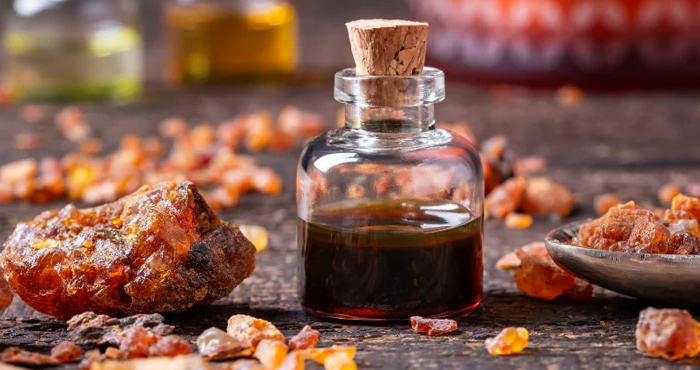Myrrh oil, derived from the resin of the Commiphora myrrha tree, has a rich history as a natural remedy. With its distinct aroma and remarkable properties, myrrh oil has been used in various cultures for centuries at https://www.mdbiowellness.com/blogs/doctors-desk/uncovering-the-myrrh-oil-benefits-for-2023-and-beyond.
Historical Significance of Myrrh Oil
Dating back to ancient Egypt, myrrh oil at https://www.mdbiowellness.com/blogs/doctors-desk/uncovering-the-myrrh-oil-benefits-for-2023-and-beyondwas prized for its use in embalming rituals and perfumes. It held sacred and medicinal significance in ancient Greece, Rome, and traditional Chinese medicine.
The Composition and Extraction Process
Myrrh oil contains terpenoids and sesquiterpenes, contributing to its potent therapeutic effects. The oil is extracted through steam distillation from the resin of the myrrh tree.
Antioxidant and Anti-Inflammatory Properties
Myrrh oil’s antioxidant and anti-inflammatory properties make it beneficial for combating oxidative stress and reducing inflammation in the body.
Immune System Support
The immune-boosting potential of myrrh oil can help the body fend off infections and promote overall immune system health.
Oral Health Enhancement
Myrrh oil’s antiseptic properties make it a valuable addition to oral hygiene routines, aiding in maintaining healthy gums and preventing oral infections.
Skin Care and Wound Healing
Myrrh oil’s skin-regenerating properties make it popular for promoting wound healing, reducing scars, and nourishing the skin.
Digestive Aid
Myrrh oil can help ease digestive discomfort, stimulate appetite, and promote healthy digestion.

Emotional Well-being and Stress Relief
The soothing aroma of myrrh oil can have a calming effect on the mind, helping to alleviate stress and anxiety and promoting emotional balance.
Balancing Hormones
Myrrh oil may positively impact hormone balance, making it useful for managing symptoms related to hormonal fluctuations.
Pain Management
The analgesic properties of myrrh oil can help manage discomfort associated with arthritis, muscle aches, and other painful conditions.
How to Use Myrrh Oil
Myrrh oil can be used in various ways, including aromatherapy, topical application, and oral ingestion. Dilution is recommended to prevent skin sensitivity.
Potential Side Effects
While generally safe, myrrh oil may cause skin irritation in some individuals. Pregnant and nursing women should exercise caution when using it.

